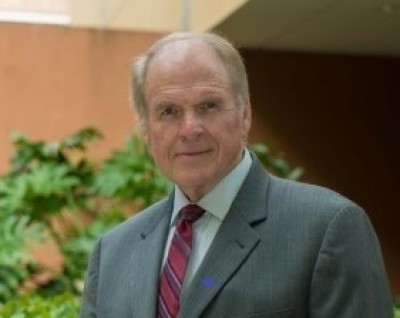Pandemic, pandemonium, and governments in crisis

The more crisis intensifies the more reactionary governing regimes become. The present pandemic-pandemonium crisis proves it. The greater the official panic the more governments lay aside principle to get things under control.
The pandemic has caused skittish politicians to become so reactionary that they have put churches in lockdown. Other magistrates have reacted to the pandemonium surrounding George Floyd’s horrid and unjust killing by serious consideration of defunding municipal police departments.
That strategy might work if we can transform human nature.
Oh, wait, that’s the business of the churches deemed by some officials to be “nonessential” during the pandemic.
However, in some places the pandemonium made people forget the restrictions imposed during the pandemic as they gathered in city streets, squares, and, yes, churches, to pray. These were the most hopeful of “protests” because there was the recognition of the need for forgiveness. No properties were burned, no bricks hurled through windows, no theft.
These sometimes-impromptu outbreaks of public prayer forgot about social distancing and other pandemic protocols. Those folks just knew that our country needs healing and that Jesus is still the Great Physician.
Politicians did not organize or lead most of these gatherings, and could only nuzzle in, hoping for face time. Perhaps now there will be a different attitude about how “essential” churches and their people are.
Christopher Dawson would have been encouraged by those clusters of praying men and women. He described the breakdown of civilization in his lifetime and said that “this instability was due to no other cause than to that very separation and dislocation of the inner and outer worlds of human experience.”
But how can the two “worlds” be reconciled — especially when it comes to separation of church and state? Clearly in the current troubled moment cooperation is needed between the “inner and outer.”
But how?
An answer lies in Zechariah 4:1-7.
During the reign of Darius over Babylon, Zechariah, a prophet among the Hebrew captives, receives a powerful vision from the Lord. The revelation shows how God sees the completeness of the authority needed to resist and overcome destroyers of civilization.
Zerubbabel led more than 40,000 of his fellow Hebrews home to the Promised Land after their liberation from Babylon through the decree of Cyrus. Back in Jerusalem, Zerubbabel becomes the civil leader, the governor, of Judah, at that time a Persian province. He has the enormous task of leading his people to rebuild Jerusalem after 70 years in ruin and restore their civilization by reconstructing the Temple.
In his vision, Zechariah had seen a golden lampstand with an olive tree on each side. The lampstand represents the presence of God and the trees Zerubbabel, the civil ruler and the other, Joshua, the spiritual leader — the high priest.
It will take both to rebuild the city and restore the civilization. In that alliance they will be instruments of the Holy Spirit. The grand recovery will be accomplished,
“Not by might, nor by power, but by My Spirit,’ says the LORD of hosts.” (Zechariah 4:6)
This is precisely where we are today. The pandemic has devastated whole economies and left some people destitute. The pandemonium has left lives and ordered society in ruins. Church and state must work together to bring healing and recovery.
In the 21st century generally, we stare at the moral, spiritual, philosophical rubble that was once the best of Western Civilization. Many are overwhelmed at the extent of destruction, while others, in hapless delusion, dance over and through the ruins. Those who understand the tragedy in the mountain of debris are overwhelmed and wonder if greatness can be recovered.
We must lock our focus on the principle behind the promise God gives to Zerubbabel in antiquity: “Not by might, nor by power, but by My Spirit says the Lord of hosts.” (Zechariah 4:6)
The great danger in a tight relationship between civil leaders and spiritual leaders is the potential for creating at least an informal theocracy. Church and State are indeed to be separate, and that prevents a theocracy.
While alert to the theocratic temptation, the focus on the Kingdom of God must not be lost. Even those who do not acknowledge its reality or believe in the blessings of a civilization established on its principles intuitively recognize the need for Kingdom qualities. Proverbs 29:2 (NKJV) says,
When the righteous are in authority, the people rejoice;
But when a wicked man rules, the people groan.
Both Church and State are to recognize that God Himself defines their limits, and they must not try to cross over and usurp the role of the other. This means the Church must not try to become the State. This is what happens in theocracies. Theocratic systems inevitably become oppressive because those in civil leadership are claiming God as the source of their power, therefore asserting that they have divine and thus absolute sanction for their policies and actions.
On the other hand, the State must not seek to become the Church. When this occurs, the State assumes it has not only power at the immanent level but is itself transcendent. The State becomes the object of worship and must be obeyed. the distinctive roles of Church and State are confused, and they try to usurp one another’s positions as determined by God.
The health of a nation is in direct ratio to the health of the church within the nation. But the nation is the community of people. The church that does not engage with its society has lost its vision and mission. The nation that does not cherish the spiritual principles that are its foundation courts collapse as those foundations erode.
Wallace Henley is a former pastor, White House and congressional aide, and author of more than 25 books. His newest is Two Men From Babylon: Nebuchadnezzar, Trump, and the Lord of History, published by Thomas Nelson.



























